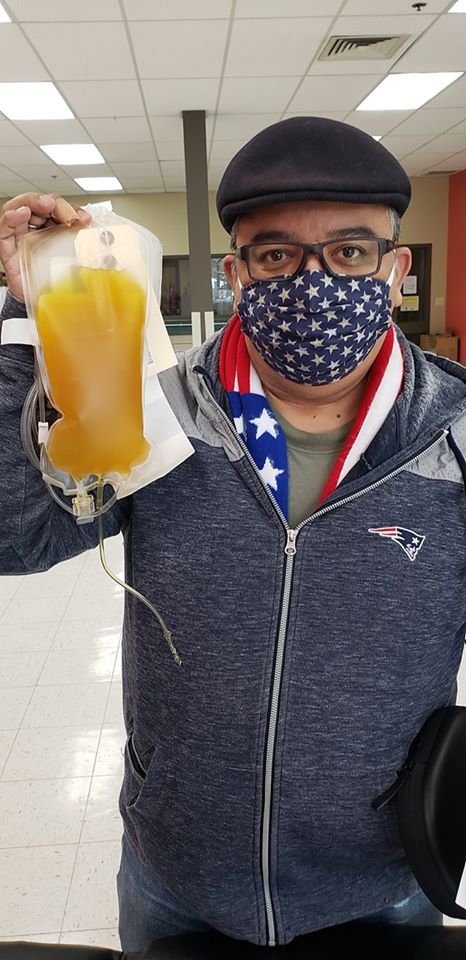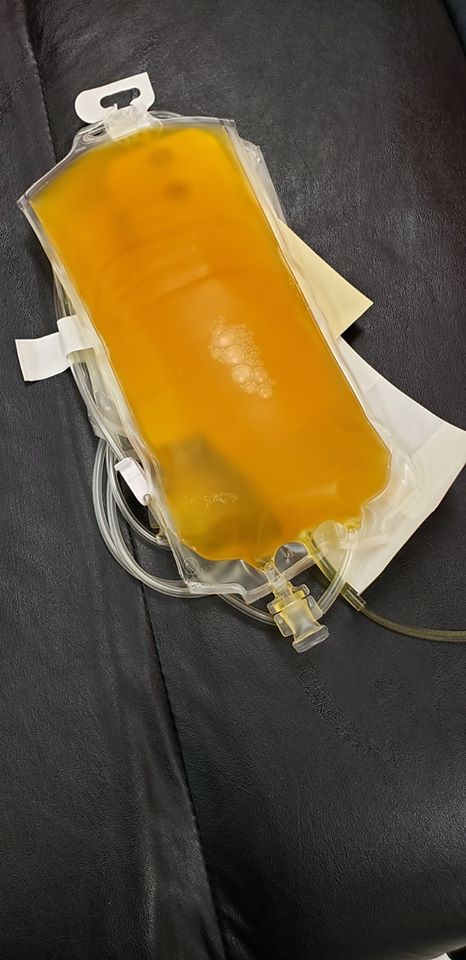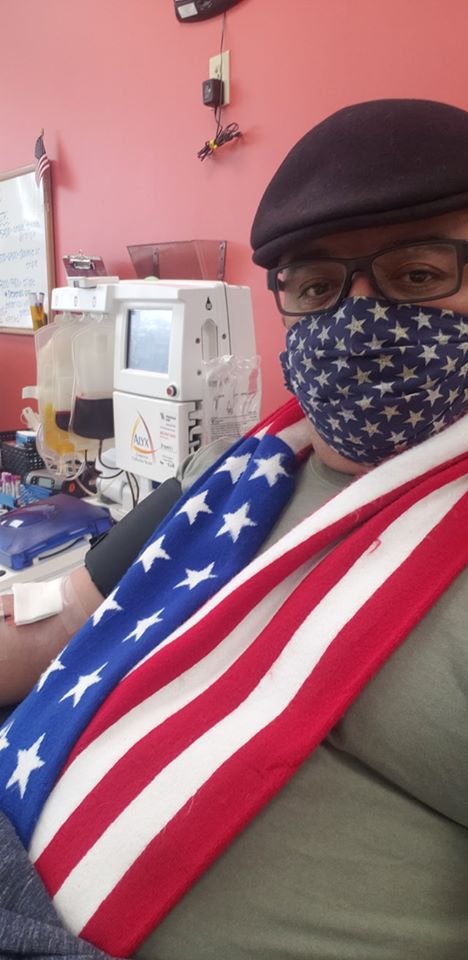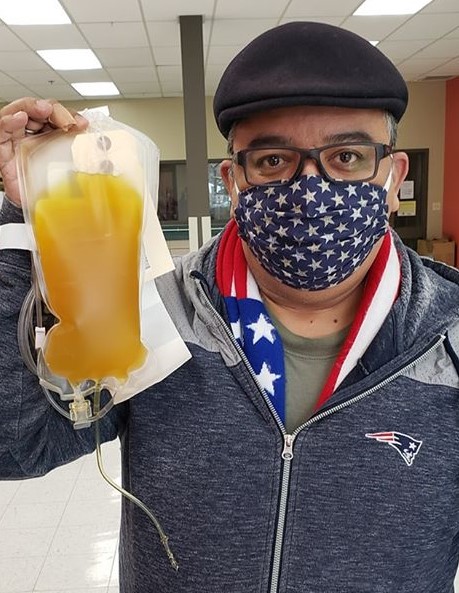[broadstreet zone=”58610″]
FRAMINGHAM – Framingham Traffic Commission Mario Alvarez suffers from asthma.
On a recent Monday, he had a bad cough. On Tuesday, he could not control the cough.
This was during the global coronavirus pandemic, so he thought maybe he should be tested for COVID-19.
Alvarez was tested and was told to self-isolate for 7-10 days.
The test results were not due for a week, but on Monday, a week after the cough developed, Alvarez was told he was positive for the coronavirus.
“I was told to isolate, and isolate from my family,” said Alvarez.
He said a lung specialist gave him medication to bring his symptoms under control.
Alvarez believes he had a very mild case, and possibly even an asymptomatic case of COVID-19.
[broadstreet zone=”53820″]
“I had no fever,” said Alvarez. “The only symptom was that my asthma was worse.”
After recovering from the coronavirus, Alvarez wanted to find a way to help.
He had heard that those who recovered should donate their plasma to help others battling the virus.
“Individuals who have recovered from COVID-19 could have an immediate impact in helping others who are severely ill. In fact, one donation has the potential to help up to four patients. Convalescent plasma can also be used to manufacture a biological product called hyperimmune globulin, which can similarly be used to treat patients with COVID-19,” said the U.S. Food & Drug Administration (FDA).
“I registered with several places to donate plasma, but I didn’t hear back from anyone,” said Alvarez.
“I kept registering and offering to help those who were very ill,” said Alvarez.
Alvarez, said last week, a family in Massachusetts needed someone to donate plasma to help a loved-one who was losing their fight with COVID-19 in a hospital.
I registered and it was discovered I was compatible with the man, said Alvarez.
On Saturday, April 18, Alvarez went to the Red Cross Center in Dedham.
[broadstreet zone=”59984″]
It took 35 minutes to donate the plasma, said Alvarez.
“During a plasma donation, blood is drawn from an arm and sent through a high-tech machine that collects your plasma and then safely and comfortably returns your red cells and platelets back to you, along with some saline. It only takes a few minutes longer than donating blood,” explained the American Red Cross.
“It felt great to help,” said Alvarez.
But that evening he heard back from the daughter of the man he had planned to help with his donation.
“She told me her father passed away today,” said Alvarez.
“This virus is killing people,” said Alvarez. “Now, I hope my plasma can help someone else.”
Alavrez is encouraging anyone who has had COVID-19 and has recovered to consider donating plasma too.
“It doesn’t take a lot of time, and it can save a life,” said Alvarez. “It’s quick and it can make a difference.”
The American Red Cross is managing a plasma program.
“Historically, convalescent plasma has been used as a potentially lifesaving treatment when new diseases or infections develop quickly, and no treatments or vaccines were available yet. The Red Cross has been asked by the U.S. Food and Drug Administration (FDA) to help identify prospective COVID-19 Convalescent Plasma donors and manage the distribution of these products to hospitals treating patients in need. This new program will allow for efficient distribution of convalescent plasma to wherever it’s needed most across the country,” according to the American Red Cross.
[broadstreet zone=”59983″]
Donors who have fully recovered from the new coronavirus have antibodies in their blood plasma to help protect against future infections, according to the FDA.
The Red Cross is working with the FDA to collect plasma from fully recovered coronavirus patients to provide to clinicians for patient care.
Eligible donors who complete the Donor Request form will receive an appointment to donate convalescent plasma at a Red Cross or non-Red Cross collection site.
Even if you never tested positive for COVID-19, but believe you had it, you may be able to participate in the plasma donation program.
“If you do not have a test confirming your diagnosis of COVID-19, additional testing is required for you to be qualified as an eligible donor. At this time, we have not yet established a process by which testing can be performed. We encourage you fill out our Donor Contact Form and we will contact you to provide a sample for testing once its available.,” said the American Red Cross.

***
Photos courtesy




